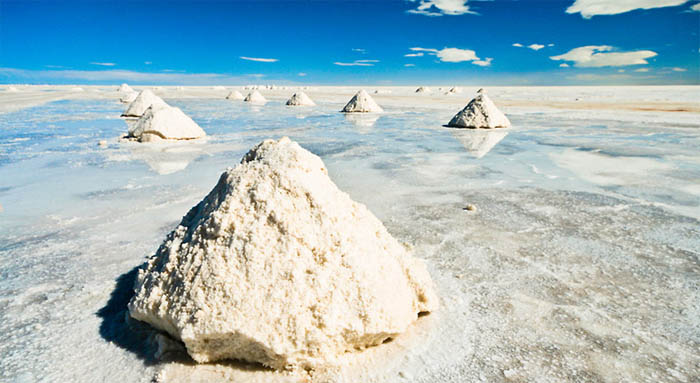The price of lithium has skyrocketed over 400% in the past year due to the demand for lithium-ion batteries. Lithium’s moniker is “white petroleum” due to dramatic need for supplies from the rise of battery giga-factories, electric vehicles, power walls and energy storage businesses. Battery makers including Tesla, Panasonic and LG Chem, have to budget for the rising cost of lithium, a metal that’s crucial to the batteries for electric cars, as they expand their production and over the coming years.
“The demand for lithium-ion batteries is higher than ever,” said Chris Berry, President and strategic metal consultant at House Mountain Partners. “Lithium’s lightness helps it store a lot of energy which is very useful for electronics.” As the price has jumped to nearly $50,000 per ton, some battery manufacturers are raising prices.
The clean energy revolution is well underway with automakers worldwide as the manufacturers grabble with microchip shortages and changing demand from customers. Volvo Cars committed to putting one million electrified cars on the road by 2025 with 50% of sales volume to be fully electric. France plans to end sales of all gas and diesel cars by 2040 with Germany mandating that all new cars are to be electric by 2030.

The quest for high grade lithium is heated among EV manufacturers. As the United States and other countries look to disentangle their clean energy supply chains from China, currently the leading lithium producer, there’s urgency to look in safe geopolitically friendly lithium-rich countries such as Chile.
The business of extracting lithium today in Chile features Albemarle, a U.S.-based company that also controls the largest lithium operations in Australia, and Sociedad Química y Minera de Chile (SQM), Chile’s largest lithium mining company. Current exploration for lithium in Chile is concentrated in the Salar de Atacama, the largest salt flat in the country, and Salar de Maricunga. The leading junior mining companies operating in the Chilean lithium mining market are Calgary based Lithium Chile and my company, Vancouver, BC-based Wealth Minerals.
Lithium Chile’s lithium property portfolio consists of 68,800 hectares in Chile. Wealth Minerals’ lithium portfolio includes over 50,400 hectares in Chile, including the Atacama salar which has the world’s highest grade and largest producing lithium brine deposit.
Moving from Discovery to Production
Turning lithium into the chemicals that power batteries is not an easy process. Without proper controls refining lithium involves chemical processes that cause water and soil pollution. It can take many years for a new lithium-mining operation to produce battery-grade materials.
While the production of lithium is essential to technology, it can be environmentally damaging. The primary sources of lithium are hard rock deposits and salar brines. Lithium processing through conventional tactics such as evaporation ponds is inefficient, producing less than half of the lithium being extracted. Pollution, high-water use and land use changes are other challenges lithium miners face. So, as EV makers are sourcing lithium, they should be mindful that their production sources are committed to environmentally sustainable mining practices.
So, how can mining organizations ensure that their sustainability standards are up to par? Two organizations, the Initiative for Responsible Mining Assurance and Responsible Minerals Initiative, provide a comprehensive standard for all mined materials to ensure that EVs are truly ‘clean-energy’ vehicles.
Lithium mining companies need to be responsible corporate citizens committed to implementing best environmental practices at all levels of their operations. That includes building projects together with the communities near operations, protecting nature and using the best available techniques and technologies to develop assets. There is no question that the success of a lithium mining business is tied to the success and stability of the company’s host communities and its reputation as a responsible partner in resource development.
Our collective future requires clean air and our pathway to that environmentally-sound planet demands a global support of economically sound alternative energy plans. A ‘bet’ on clean energy through investments in renewable energy is a wager that will deliver a cleaner planet that will thrive for current and future generations.
Credit: Source link


Comments are closed.